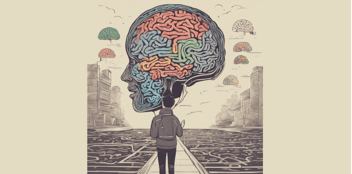Psychedelic Medications Transform PTSD and Depression: Ketamine, MDMA and Psilocybin
- Home
- Blog

My Dear Reader,
In my relentless quest to bring you the latest scientific insights into the Root Causes of Mental Health, today’s blog will discuss the emerging role of psychedelic medications for treatment-resistant conditions such as PTSD and depression. In the ever-evolving landscape of mental health treatment, one of the most intriguing developments is the emerging role of psychedelic medications in treating complex conditions like PTSD (Post-Traumatic Stress Disorder) and depression, particularly when traditional treatments fall short. This blog delves into the potential, risks, and scientific insights surrounding the use of these substances under professional medical guidance.
The FDA has begun reviewing this class of medication for approval, beginning with MDMA. In 2019 the FDA approved Spravato (esketamine), a nasal spray formulation of the drug ketamine, for treatment-resistant depression. While the nasal spray does not have psychedelic effects, Intravenous ketamine is known to induce psychedelic effects, and numerous patients of mine referred for IV ketamine have often benefited, including the story of Marissa.
How Does Ketamine Work?
Ketamine is unique among antidepressants in how it works within the brain. Unlike traditional antidepressants that typically target the serotonin, dopamine, or norepinephrine pathways, ketamine acts primarily on the glutamate system. Glutamate is the most abundant excitatory neurotransmitter in the brain.
Ketamine blocks a receptor on brain cells – NMDA – which triggers the release of Brain-Derived Neurotrophic Factor (BDNF) – the “brain’s fertilizer.” BDNF is crucial for neuroplasticity – the brain's ability to form new neural connections and pathways. Enhanced neuroplasticity is associated with improved mood and cognitive function.
What sets ketamine apart from other antidepressants is the speed at which it acts. Traditional antidepressants may take weeks to show effects, while ketamine can produce noticeable improvements in mood within hours of administration through a rapid increase in neuroplasticity. It’s thought that ketamine also affects other receptors and neurotransmitter systems, contributing to its overall therapeutic effects.
The Rise of Psychedelic Medications: Psychedelic medications, including ketamine, psilocybin (the active compound in magic mushrooms), and MDMA (commonly known as ecstasy), are gaining attention for their potential to offer significant relief in cases of treatment-resistant depression and PTSD. Studies like those published in the 'Journal of Psychopharmacology' (Mithoefer et al., 2011) and 'The Lancet Psychiatry' (Carhart-Harris et al., 2016) have shown promising results in controlled clinical settings.
Mechanisms of Action: Unlike traditional antidepressants, which typically target neurotransmitter systems like serotonin, psychedelic medications work differently. They often induce altered states of consciousness and perception, which can lead to introspective experiences and emotional breakthroughs. For instance, ketamine, an NMDA receptor antagonist, is known for its rapid antidepressant effects, as noted in 'Molecular Psychiatry' (Zarate et al., 2006).
The Role in Treating PTSD and Depression: Patients with treatment-resistant conditions often struggle with persistent symptoms despite trying various medications and therapies. Psychedelics have shown promise in these challenging cases, helping patients reframe traumatic experiences and break free from negative thought patterns.
The Importance of Medical Supervision: The administration of psychedelic medications should always occur under the guidance of a qualified medical professional. This ensures proper dosing, monitoring of effects, and the provision of a safe, supportive environment for the treatment. Self-administration, especially without supervision, carries significant risks, including the potential exacerbation of mental health symptoms and a heightened risk of adverse reactions, such as suicidal ideation and even suicide itself.
Here at Potomac Psychiatry, Dr. Paulo Negro, M.D., Ph.D., is Board Certified in both Adult Psychiatry and Addiction Medicine, and has received advanced training in psychedelic medicine. Dr. Negro received training for Ketamine Assisted Psychotherapy at the Polaris Insight Center, and also studied at the Psychedelic Psychopharmacology seminars at Fluence. To quote Dr. Nego, “Psychedelic medicine, in conjunction with psychotherapy, offers a transformative approach to healing. Rather than being constrained by an unconscious shaped by past traumas, it enables individuals to actively shape their present and future. This therapeutic process facilitates profound changes that can alter one’s perception of the past, creating a dynamic loop of healing and transformation."
Scientific Evidence and Ongoing Research: Research in this field is expanding. Studies like those conducted by Griffiths et al. (2016) in 'Journal of Psychopharmacology' demonstrate the potential of psilocybin to alleviate depressive symptoms, while Mithoefer et al. (2018) in 'Psychopharmacology' highlight the benefits of MDMA-assisted psychotherapy for PTSD.
Understanding the Risks: While the therapeutic potential of psychedelics is significant, it's crucial to acknowledge the risks. These substances can induce intense psychological experiences, and their impact can vary greatly among individuals. The risk of self-harm, including suicide, is a serious concern, particularly in individuals with a history of mental health issues. This underscores the need for professional oversight, where the psychological and emotional well-being of the patient is continuously monitored.
The Path Forward: As research progresses, the role of psychedelic medications in mental health treatment continues to be refined. For practitioners and patients alike, staying informed about the latest developments, clinical trials, and regulatory changes is essential. The future of psychedelics in psychiatry holds promise but must be navigated with caution, ethical considerations, and a commitment to patient safety.
In Conclusion: The exploration of psychedelic medications in treating PTSD and depression represents a bold step forward in mental health care. However, this journey must be undertaken with careful guidance, thorough understanding, and a deep commitment to patient well-being. At Potomac Psychiatry, we're dedicated to exploring innovative treatments while prioritizing the safety and health of our patients.
References:
- Mithoefer, M. C., Wagner, M. T., Mithoefer, A. T., Jerome, L., & Doblin, R. (2011). The safety and efficacy of ±3,4-methylenedioxymethamphetamine-assisted psychotherapy in subjects with chronic, treatment-resistant posttraumatic stress disorder: the first randomized controlled pilot study. Journal of Psychopharmacology, 25(4), 439-452.
- Carhart-Harris, R. L., Bolstridge, M., Rucker, J., Day, C. M., Erritzoe, D., Kaelen, M., Bloomfield, M., Rickard, J. A., Forbes, B., Feilding, A., Taylor, D., Pilling, S., Curran, H. V., & Nutt, D. J. (2016). Psilocybin with psychological support for treatment-resistant depression: an open-label feasibility study. The Lancet Psychiatry, 3(7), 619-627.
- Zarate, C. A., Singh, J. B., Carlson, P. J., Brutsche, N. E., Ameli, R., Luckenbaugh, D. A., Charney, D. S., & Manji, H. K. (2006). A randomized trial of an N-methyl-D-aspartate antagonist in treatment-resistant major depression. Molecular Psychiatry, 11(8), 793-803.
- Griffiths, R. R., Johnson, M. W., Carducci, M. A., Umbricht, A., Richards, W. A., Richards, B. D., Cosimano, M. P., & Klinedinst, M. A. (2016). Psilocybin produces substantial and sustained decreases in depression and anxiety in patients with life-threatening cancer: A randomized double-blind trial. Journal of Psychopharmacology, 30(12), 1181-1197.
- Mithoefer, M. C., Feduccia, A. A., Jerome, L., Mithoefer, A., Wagner, M., Walsh, Z., Hamilton, S., Yazar-Klosinski, B., Emerson, A., & Doblin, R. (2018). 3,4-methylenedioxymethamphetamine (MDMA)-assisted psychotherapy for post-traumatic stress disorder in military veterans, firefighters, and police officers: a randomised, double-blind, dose-response, phase 2 clinical trial. Psychopharmacology, 235(6), 1623-1640.
Potomac Psychiatry - Learn More
If you or a loved one is struggling with treatment-resistant PTSD or depression and are curious about the potential of psychedelic medications, and our Root Cause Psychiatry™ approach to treatment, we invite you to book a no-cost consultation to learn more about your options and our approach.
.png?width=144&height=144&name=Untitled%20design%20(34).png)



